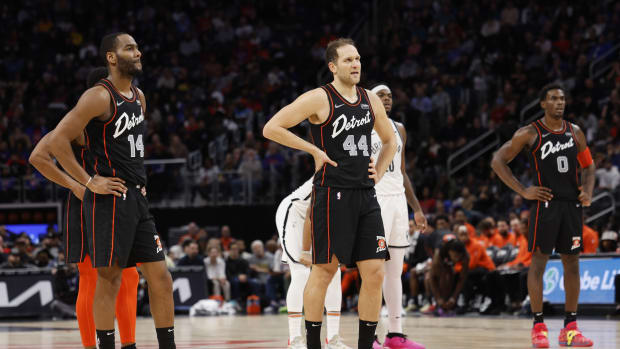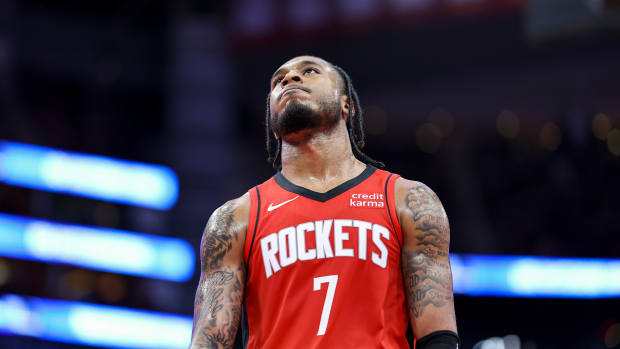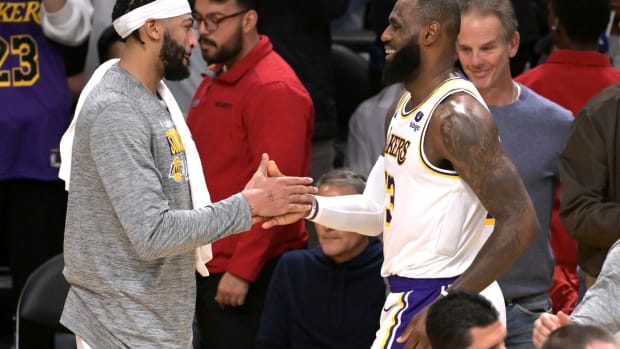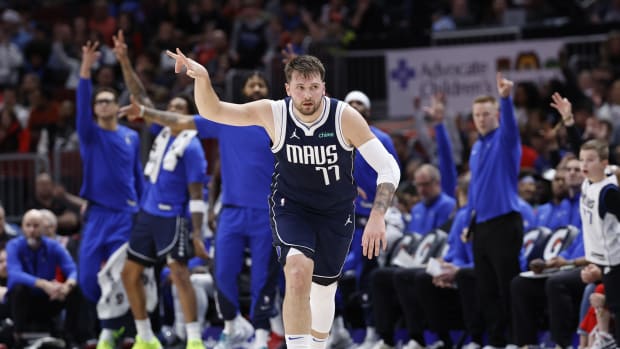The Anthony Davis Trade Hype Has Been Seven Years in the Making
There is no bigger story in the NBA right now than the next move of Anthony Davis, a superstar with a season and a half remaining under contract who has not expressed any want to be traded. Strange as that might seem, it’s really business as usual. NBA front offices trade in the future. They scout prospects who won’t be in the league for years. They plan their rosters around multi-year contract commitments. And when the countdown clock for any player as good as Davis begins to wind down, they work every possible angle in their pursuit, years in advance.
How else could they guarantee themselves the cap space they need? Or the trade pieces? If teams waited until Davis was actually on the market to make their move, they would be so far behind as to be out of the running entirely. It’s not enough to be opportunistic when so many teams are vying for so few franchise players. Smart organizations anticipate possibilities, and acquiring Davis seems very much a possibility.
MAHONEY: LeBron Avoids Serious Injury, Lakers Stifle Warriors
This is in spite of the Pelicans announcing, through head coach Alvin Gentry, that they would not trade Davis. "We're not trading him under any circumstance,” Gentry told reporters last week. “You can move on from that one." This season, that may be true. Beyond it, things get more complicated. No team would want to trade a player like Davis, though the Pelicans may have less say in the matter than they would like. New Orleans can offer Davis far more money than any other team—a “supermax” extension designed for just this situation. It just may not be enough. “Don’t get me wrong, money is amazing,” Davis told Chris Haynes of Yahoo! Sports. “But I think in that sense, money or legacy, I think my legacy will win that battle every time.”
It would be difficult to argue that a future with the Pelicans, who have underwhelmed at 15–19, would come in service of that legacy. If Davis wants to contend for a title, as he says he does, there are better basketball situations in which to do so—teams more loaded with talent that still have room to grow. New Orleans, by contrast, is again in a position where it will need to pay to keep its veteran free agents (Nikola Mirotic and Julius Randle) just to hold course. Under the circumstances, it would be difficult for the Pelicans to freewheel their way into any meaningful amount of cap space while still preserving the kind of team Davis would actually want to return to.
This is the bed the Pelicans have made. Dell Demps and his staff have had seven years to build this roster around Davis—eons in NBA terms. To be below .500 after all this time is a blow. Injuries have derailed the Pelicans at crucial times. Small-market operations limited how New Orleans could go about its business. Yet the original sin of this particular era, if there is one, may have been the choice to accelerate things so quickly with a financial track that would prove unsustainable.
The idea of surrounding Davis, a precocious 20-year-old, with a core of quality players three to five years older passes conceptual muster now as it did then. Franchises progress along the timeline of their best players. Davis was ready to compete by Year Two, and so the Pelicans aimed to compete. Soon, Eric Gordon and Ryan Anderson were joined by Jrue Holiday and Tyreke Evans, a group that seemed capable of growing together—and with Davis—while fighting for a playoff spot. A rebuilding New Orleans team tried to have its king cake and eat it, too, an approach that would prove quite costly.
One of the damning problems of moving too fast too soon are the contracts that come with it. Teams that prioritize veterans have to pay veteran rates. So rather than build around cost-controlled, rookie-scale prospects, the Pelicans had committed to players already on their second contracts. Some, like Evans, were on deals that their previous teams were all too eager to unload. The window for New Orleans to add another star all but vanished. There was no opportunity for the Pelicans to spend before an extension kicked in, to leverage restricted free agency, or to take advantage of a low cap hold. This organization has been saddled with a rotation full of eight figure salaries since 2012.
Rather than attempt to correct for that mistake, the Pelicans pushed forward, ever impatient. There are many reasons why small-market teams do the odd things they do; in this case, the pressures to keep Davis happy, even then, and to fill seats in a football town ought to be acknowledged. They don’t, however, excuse re-signing Omer Asik—whose Pelicans tenure had been rather unremarkable—on a five-year, $58 million contract. They don’t explain why New Orleans bailed so quickly on Al-Farouq Aminu, creating a hole on the wing that ultimately led them to award a lavish contract to Solomon Hill. For all the complicating factors involved, New Orleans has consistently managed to back itself into corners, as if deathly allergic to the kind of financial flexibility other teams make a priority.
ROSENBERG: LeBron's 'Jewish Money' Post Can Be Explained
This is why their trading for DeMarcus Cousins in 2017 was such a huge break for the franchise. There wasn’t any mechanism in place to acquire a player of Cousins’s level through any other means, and this specific move was only possible because of both the reputation Cousins had built for himself and the … unique organizational culture in Sacramento. Cousins, flawed though he may be, was the Pelicans’ first and only real shot at sustainability. It ended less than a year after his arrival, when his achilles tendon tore while making an effort play in the closing moments of a regular season game. Cousins became a free agent six months later and, like that, he was gone, the Pelicans’ break gone bad.
There is no one misstep that brought the Pelicans to this point, but a series of them, building on one another like a lopsided, ill-fated house of cards. It wasn’t just the contract given to Asik, but the fact that Pelicans gave up a first-round pick to acquire him in 2015 and another to dump his contract in 2018. It wasn’t Anderson, Evans, or Gordon, but the intersection of the three and what the Pelicans paid in opportunity costs. Even the best of teams can only make win-now moves for so long. New Orleans has essentially been making them for seven years, without winning nearly enough to convince Davis of anything at all.



































